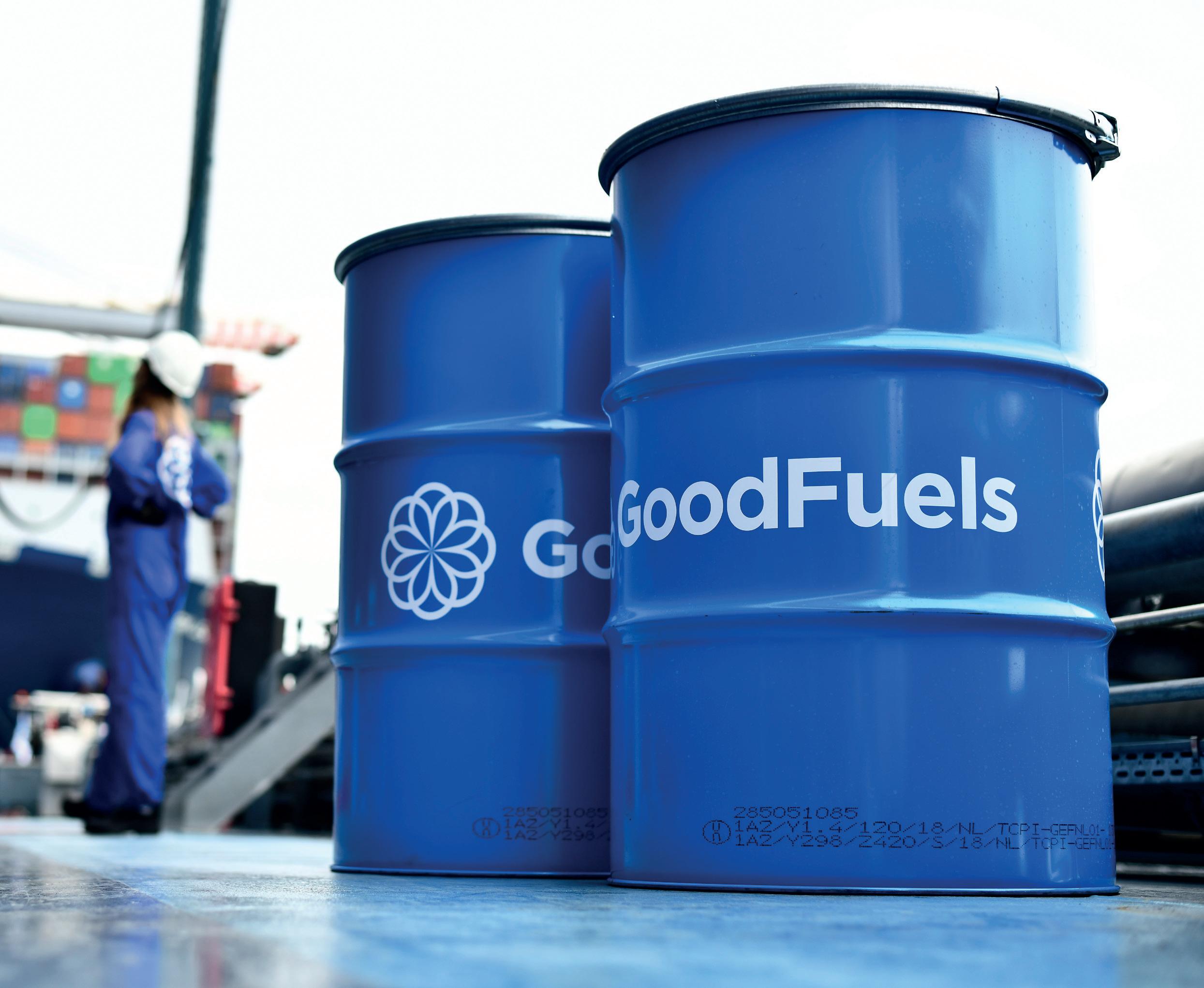THE ROLE OF RENEWABLE MARINE FUELS Rianne de Vries, GoodFuels The Netherlands
The GHG strategy communicated by the International Maritime Organization in April 2018 to reduce 50% of the CO2-emissions by shipping in 2050 compared to 2008, functioned as a wakeup call for many stakeholders in the shipping industry. The IMO’s GHG targets made clear that 2020 is just the beginning of a very challenging pathway towards a low – and ultimately zero – carbon era for the industry.
A
t GoodFuels, we accelerate this transition by developing and commercializing sustainable alternatives to fossil fuels. Having been a true pioneer and market leader ever since 2015, we have supplied the marine industry with innovative and sustainable fuels such as Hydrotreated Vegetable Oil and more recently our ground breaking Bio-Fuel Oil, a 100% replacement of the polluting heavy fuel oil. 32 Be
With these products, we have truly triggered and accelerated the transition towards fossil-free shipping. DECARBONIZING THE SHIPPING SECTOR In transportation different modalities have different options for decarbonization. At GoodFuels, our aim is to focus on those segments that do not have many alternatives (yet). For now, this is very much the case for deep sea shipping. This
segment is still almost fully reliant on fossil fuels. When expressed in CO2-emissions per ton-mile, the results are in general better compared to aviation or road transport, however the industry is heavily dependent on fossil fuel oil, the cheapest and also arguably the dirtiest fossil fuel in the world. Since the introduction of the 0.5% Sulphur cap at the start of 2020, Very Low Sulphur Fuel Oil, also known as VLSFO, is the new standard for ships without










